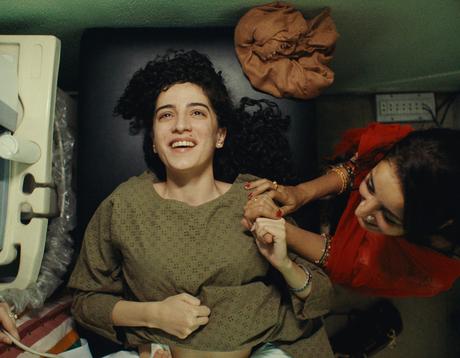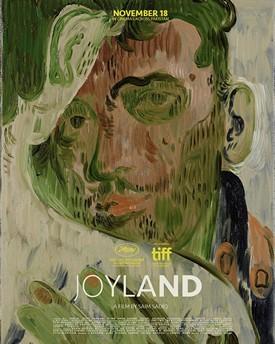

The 2022 film year delivered numerous discoveries from across the world. One of the most exciting new filmmakers came not from the global north, however, but the burgeoning film industry of Pakistan. In his feature debut, Saim Sadiq's delivers a true gem with "Joyland", a powerful story about family, identity and sexuality within the confines of a conservative society.
We enter this world through the eyes of Haider (Ali Junejo), a humble young man living in an extended household that includes his wife, brother, sister-in-law and their four granddaughters. Presiding over the family is his disapproving father, who pressures Haider to have his own child and exert his masculinity by finding a job. Though Haider and Mumtaz are comfortable in their arrangement - he takes care of the domestic chores while she works in a salon - their situation will soon change when Haider finds work as a backup dancer in an erotic dance theater. Though he is no natural dancer, he is determined to succeed, motivated by his attraction to one of the main performers - a transgender woman named Biba (Alina Khan).
Soon a love triangle forms between the three central characters, causing expected tensions in Haider's marriage. But far from the melodrama this promises, Sadiq uses the conflict to explore each character's inner life and the nature of their relationships with each other. Junejo carries the film brilliantly on his slight shoulders, conveying his gentle arc of self-discovery and self actualization. Meanwhile, Farooq is a marvel as Mumtaz, delivering a performance of incredible nuance as her character becomes increasingly disillusioned with the trajectory of her life. And Khan also shines in her role, showcasing versatility through her vivacious dance scenes and more tender private moments. Altogether, their chemistry with each other feels effortlessly sincere, conveying intimacy not through sex and physical touch but honest dialog and vulnerability.
Indeed, thanks to the rich screenplay and the terrific performances, each character feels fully developed and realized. Even a few minor characters are gifted revelatory scenes that add further layers to the story. Furthermore, Sadiq proves to be a talented visual storyteller too, with abundant metaphors both obvious (e.g. a larger-than-life cutout of Biba that disrupts a drab city) and subtle (e.g. framing actors in windows, mirrors and doors to suggest a sense of captivity).
As the film lays its characters bare and exposes the ills of a transphobic and patriarchal society, "Joyland" resonates with its empathetic humanism. This confident and accomplished debut deserves to be seen by wider audiences. And I can't wait to see what Saim Sadiq does next.
